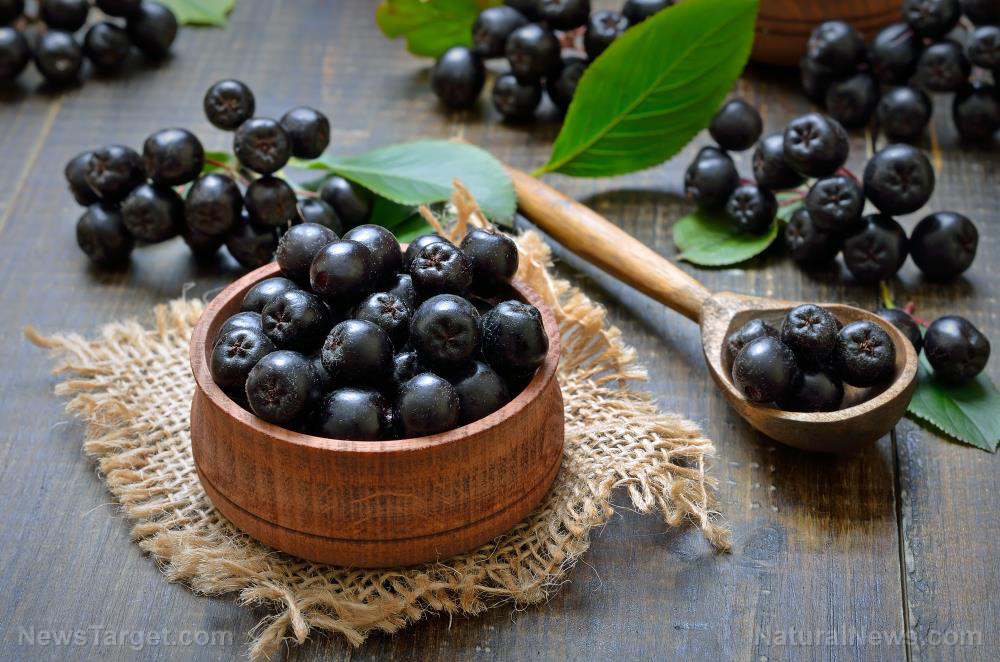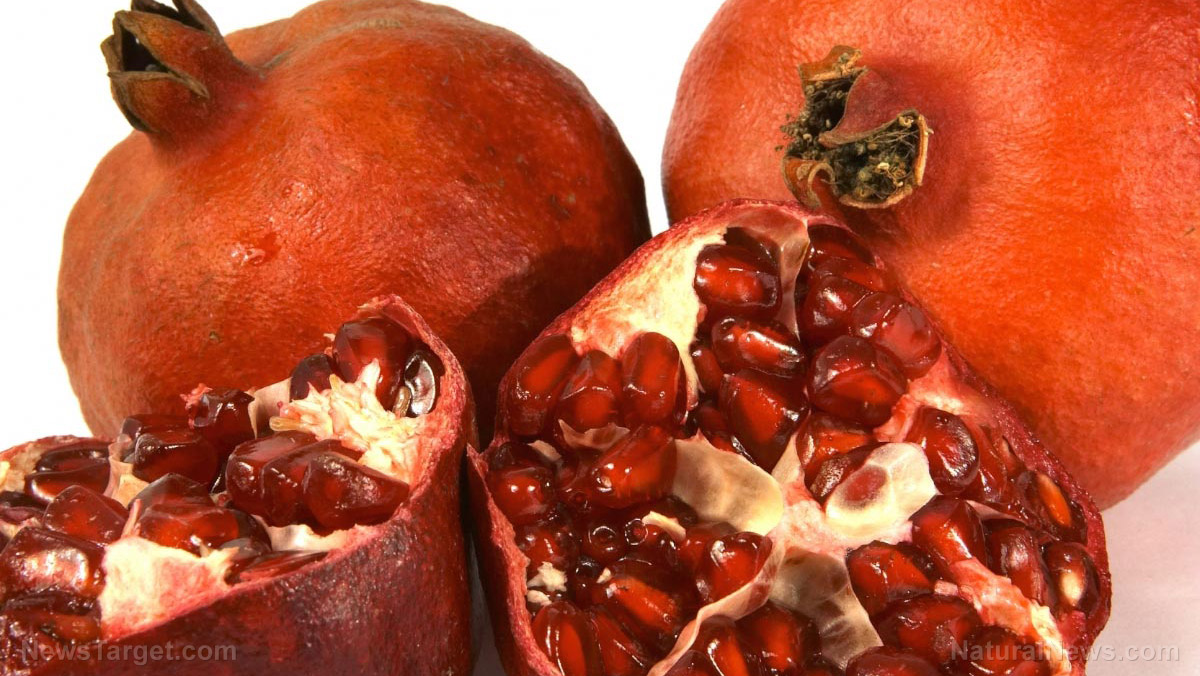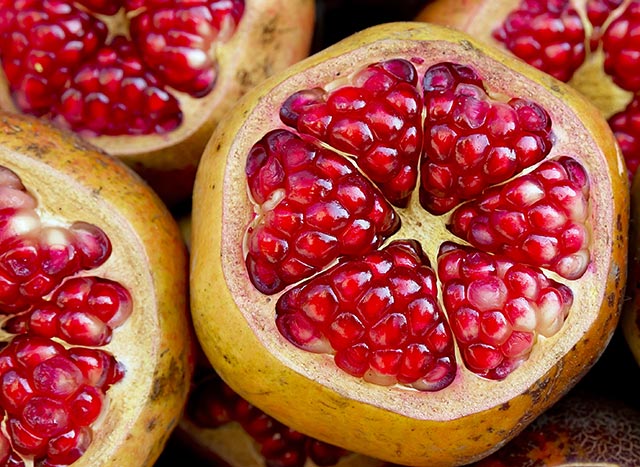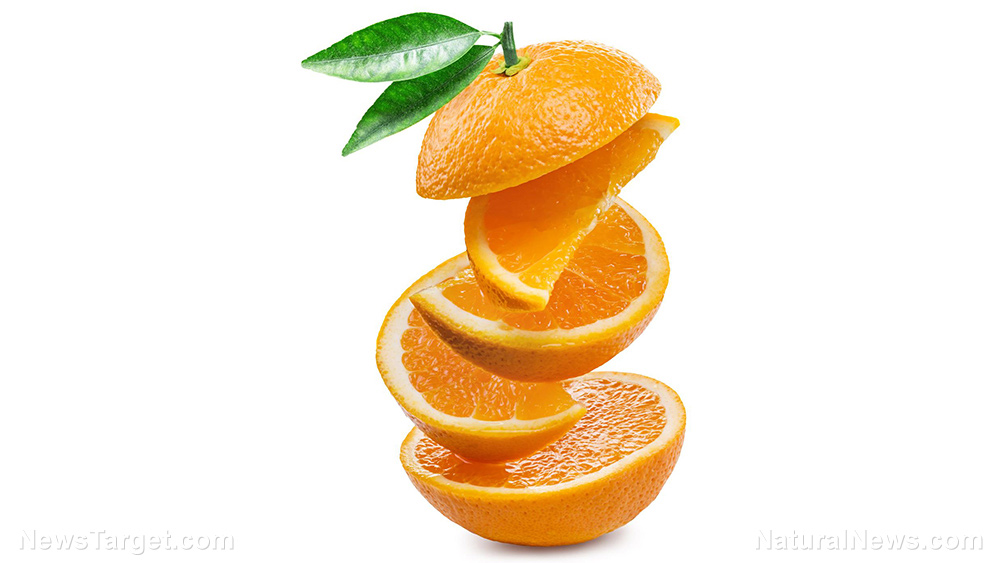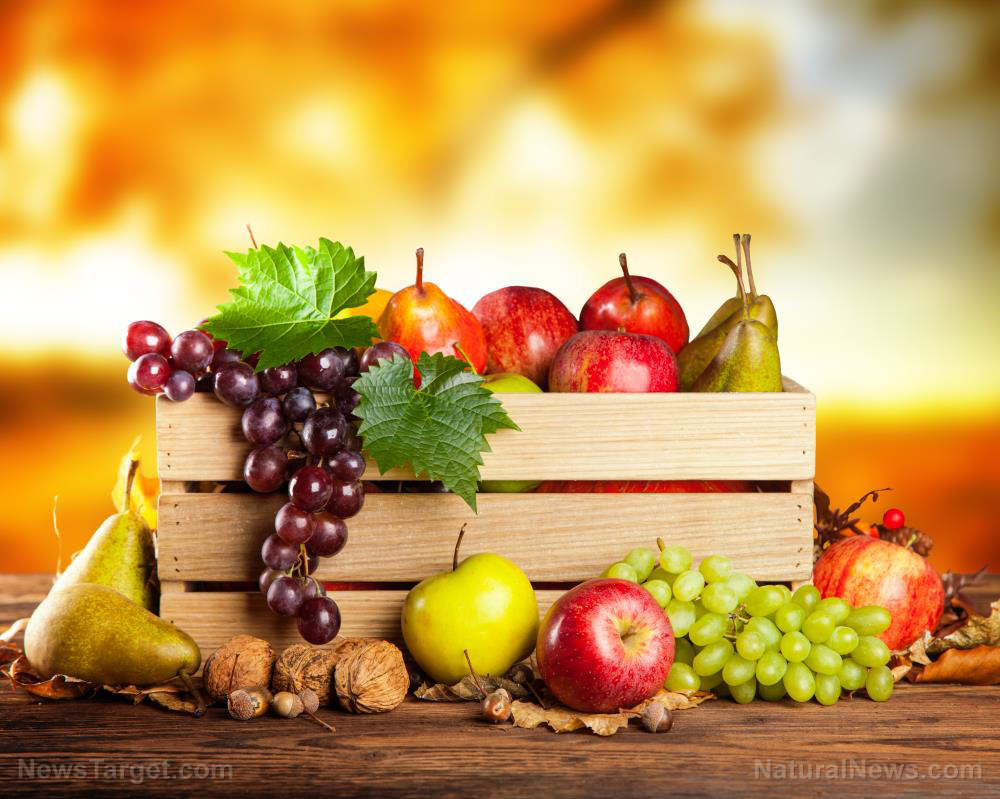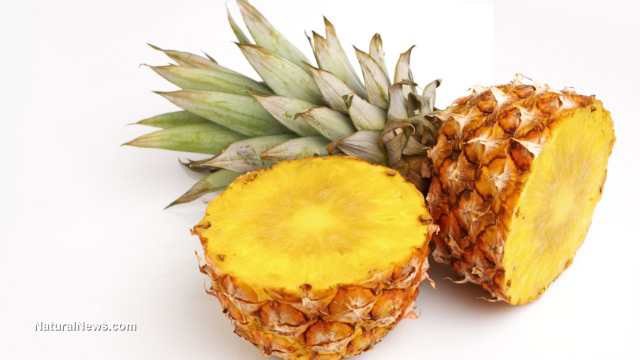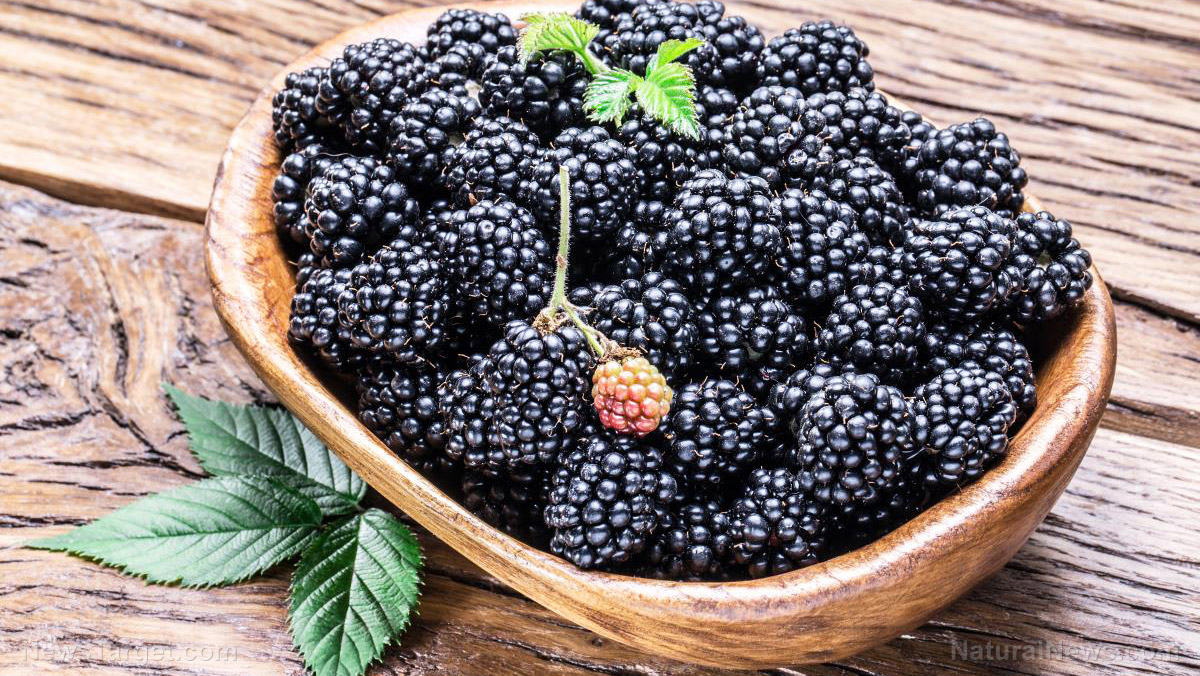Phytochemical in apple peels found to boost brain health
04/20/2022 / By Zoey Sky

A study found that a phytochemical in apple peels promotes the growth of new neurons. This is an important finding because the human brain becomes more susceptible to various health problems with age.
The elderly are susceptible to Alzheimer’s disease, a debilitating condition that can eventually turn a loved one into a stranger. Alzheimer’s can make you forgetful, and it can drastically change your personality to the point where it negatively affects your quality of life.
Fortunately, researchers are learning more about the factors that put people at risk of Alzheimer’s, as well as the healthy habits that can promote brain health.
Quercetin and neurogenesis
According to the results of a collaborative study between researchers from the University of Queensland and the German Center for Neurodegenerative Diseases (GCND), a phytochemical in apple peels called quercetin can promote neurogenesis, or the growth of new neurons. The study was published in Stem Cell Reports.
The researchers reported that while the compound didn’t make the brain grow neurons at high concentrations, it was pro-neurogenic at low concentrations. This means supplementation with quercetin led to the creation of new neurons, specifically in the hippocampus.
The hippocampus is part of the limbic system where behavioral and emotional responses are generated. These responses are essential for survival and include feeding, the fight-or-flight response, reproduction and caring for babies. Other parts of the limbic system include the amygdala, basal ganglia, hypothalamus and thalamus.
The hippocampus has an important role in memory consolidation, coding and learning. It also helps form a cognitive map, which is related to your ability to acquire new knowledge, store it and recall it later.
The hippocampus is also the area of the brain first damaged by the plaques and tangled fibers associated with Alzheimer’s. In 2020, there were an estimated 5.8 million Americans diagnosed with Alzheimer’s, and almost two-thirds were women.
According to health experts, the population of people older than 65 continues to grow. At the same time, the number of people with Alzheimer’s is also rapidly increasing. By 2050, experts estimate that at least 13.8 million Americans will have Alzheimer’s.
How quercetin stimulates neurogenic growth
In the study, researchers analyzed how quercetin, a flavonol found in apple peels, can trigger neuron growth. Flavonols are plant pigments that give fruit and vegetables their bright colors.
The researchers reported that some plant compounds are vital for maintaining cognitive function because they help grow new neurons. Through neurogenesis, the brain can reshape and grow itself, which is essential for optimal cognitive agility. The researchers said they chose apples because they are widely available.
For the study, the researchers first analyzed quercetin, the most abundant flavonoid in apple peel. In the second half of the study, the researchers conducted an in vivo study using an animal model.
Data analysis revealed that apple peels contained compounds that help promote neurogenesis. Quercetin from the peel and another active compound from apple flesh, 3,5-Dihydroxybenzoic acid (DHBA), were found to increase precursor cell proliferation and neurogenesis.
The researchers measured the effect of these compounds on neural precursor cells or stem cells that can generate neural cell types within the brain. Results showed that the compounds had similar effects to those observed in earlier studies for other plant compounds like resveratrol and epigallocatechin-3-gallate (EGCG), which is found in green tea.
The researchers also found that the stem cells generated in the brain of mice were protected and exhibited more neurogenesis when quercetin and DHBA were added to the cell cultures. In addition, they found that structures in the brain associated with learning and memory had more neurons when the mice were given either quercetin or DHBA. (Related: Making healthy lifestyle choices can prevent the onset of dementia.)
Other ways to boost brain health
While researchers continue to study the benefits of quercetin on neurogenesis, here are other ways to boost your brain health.
Astaxanthin
Astaxanthin is a potent antioxidant and a naturally occurring carotenoid. It is responsible for the pink or red color found in seafood like lobster, salmon and trout.
Often called the “king of antioxidants,” astaxanthin is derived from the microscopic algae haematococcus that produce it as a protective mechanism to shield it from ultraviolet (UV) light. Once consumed, it helps protect you from reactive oxygen species and oxidation that are linked to aging like Alzheimer’s disease, heart disease and Parkinson’s disease.
In a review of scientific literature, researchers identified several pathways astaxanthin may take to help slow brain aging. Findings also suggest that astaxanthin can boost BDNF levels and reduce oxidative damage to DNA, lipids and proteins.
Omega-3 fatty acids
Omega-3 fatty acids are healthy fats found in fatty fish that help protect the brain. Omega-3s are long-chain polyunsaturated fatty acids that include EPA (eicosapentaenoic acid) and DHA (docosahexaenoic acid).
These nutrients are crucial for cell membrane health and have an anti-inflammatory role in the body. DHA is needed for brain health because it is an important structural component found in high levels in neurons.
Low levels of DHA were associated with both memory loss and Alzheimer’s. Research also found that brain diseases may potentially be reversible when sufficient DHA is provided.
To optimize brain health, eat wild-caught Alaskan salmon, krill oil or other safe fish like sardines, to meet these nutritional requirements.
Avoid processed food
Following a balanced diet and avoiding processed foods and sugar can also help boost brain health.
Eating high-sugar foods regularly was found to increase your risk of developing Type 2 diabetes, which is linked to a 60 percent higher risk for any type of dementia.
According to a study, even without a diagnosis of Type 2 diabetes volunteers with higher blood sugar levels had lower hippocampal volume and people with higher hemoglobin A1c and glucose measurements had significantly lower scores on memory testing.
Avoid drinking alcohol
Managing your alcohol intake or avoiding alcohol altogether can also help boost brain health since chronic excessive alcohol consumption is often linked to dysfunction of neuronal dysfunction and brain damage.
Even moderate alcohol consumption can reduce brain volume.
In a large study evaluating brain aging and alcohol, scientists from the University of Southern California examined 17,308 brain scans of cognitively normal participants. Findings revealed that for every gram of alcohol consumed each day, the volunteers’ brain aged 0.02 years or 7.3 days.
This means 12 ounces of regular beer contained at least 14 grams of alcohol.
Get enough sleep
Getting enough sleep ensures your body recovers from mental stress and physical exhaustion, especially since chronic sleep deprivation is a major lifestyle component that is linked to poor brain health. This means not getting enough sleep results in your brain not being able to work at optimal levels.
Keep your brain healthy by following a balanced diet, avoiding alcohol and processed foods and getting enough sleep every night.
Watch the video below to know more about the benefits of quercetin for brain health.
This video is from the Holistic Herbalist channel on Brighteon.com.
More related stories:
Brain-boosting berberine: Study shows it reduces likelihood of Alzheimer’s disease.
Study: Pressure on blood vessels that decreases cerebral blood flow may be linked to Alzheimer’s.
Sources include:
Submit a correction >>
Tagged Under:
aging, Alzheimer's disease, anti-aging, apple peel, brain function, brain health, cognitive health, dementia, food is medicine, food science, fruits, natural medicine, neurogenesis, phytonutrients, quercetin, research
This article may contain statements that reflect the opinion of the author
RECENT NEWS & ARTICLES
COPYRIGHT © 2017 FRUITS NEWS






